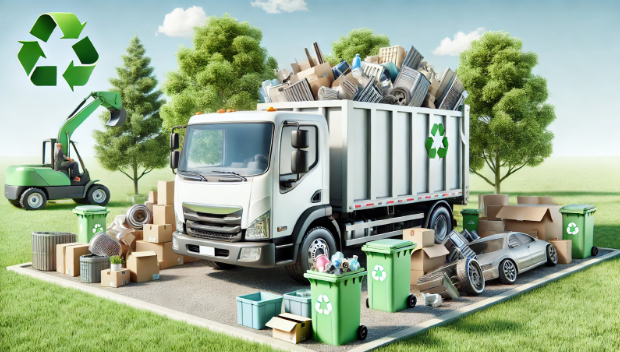
How to Recycle Unwanted Items Responsibly
Are those old gadgets and furniture taking up too much space? You're not alone. Millions of households struggle with cluttered garages, attics, or storage units filled with items they no longer use. But tossing these items into a landfill isn't the best solution. Recycling unwanted items responsibly can save resources and reduce waste, making your junk removal efforts eco-friendly. This guide will show you exactly how to get started.
Why Recycling Unwanted Items Matters
Environmental Impact
Each year, landfills fill up with waste that could have been recycled. Recycling reduces greenhouse gas emissions and conserves natural resources, like trees and water.
Community Benefits
Many unwanted items, like furniture and electronics, can be donated to help those in need. Recycling contributes to a circular economy, where items are reused or repurposed instead of discarded.
Economic Savings
Some recycling centers offer cash for certain materials, such as aluminum, copper, or electronics.
Proper recycling
saves money for local governments by reducing landfill management costs.
Common Household Items You Can Recycle
1. Electronics
Old smartphones, laptops, and TVs often contain harmful materials like lead or mercury. Many local recycling programs or e-waste facilities will safely dispose of or refurbish these items.
- Where to recycle: Best Buy, Staples, or local e-waste events.
- Pro Tip: Remove personal data before recycling electronics.
2. Furniture
Your couch or dresser may be someone else’s treasure. Instead of dumping furniture:
- Donate to charities like Goodwill or The Salvation Army.
- Sell items online through platforms like Facebook Marketplace.
3. Clothing and Textiles
Clothes that are too worn for donation can often be recycled into rags or insulation materials.
- Where to recycle: H&M and other brands offer textile recycling programs.
- Pro Tip: Check for local textile recycling bins in your area.
4. Batteries and Light Bulbs
These contain chemicals that are harmful to the environment if not disposed of properly.
- Recycle at: Home Depot, Lowe’s, or specific hazardous waste collection sites.
5. Plastic, Paper, and Glass
Your curbside recycling program typically covers these, but always check what is accepted in your area to avoid contamination.
Table: Recycling Resources at a Glance
| Item | Where to Recycle | Special Notes |
|---|---|---|
| Electronics | Best Buy, Staples | Remove all personal data. |
| Furniture | Goodwill, Facebook Market | Check for free pickup services. |
| Clothing | H&M, Local bins | Torn clothes can become insulation. |
| Batteries/Lightbulbs | Home Depot, Lowe's | Avoid placing in curbside bins. |
| Plastics/Paper/Glass | Local curbside recycling | Check city-specific guidelines. |
How to Start Recycling Unwanted Items
- Sort Your Items
Begin by categorizing your junk into recyclables, donate-worthy items, and hazardous waste. Use labeled bins to keep things organized. - Research Local Recycling Programs
Visit your city’s website or Earth911 to find recycling centers near you. Each location may have specific requirements. - Schedule Pickups
Many junk removal services, like 1-800-GOT-JUNK, offer recycling-specific pickups for large items like appliances or mattresses. - Stay Informed
Check recycling guidelines regularly. Rules for acceptable materials can change based on local policies.
Tips to Make Recycling Easier
- Create a Recycling Station
Set up bins in your home for paper, plastics, and glass to streamline the process. - Download Recycling Apps
Apps like Recycle Coach or iRecycle provide localized information on what and where to recycle. - Encourage Family Participation
Make recycling a family activity by assigning tasks, such as sorting or drop-offs.
Frequently Asked Questions (FAQs)
1. What items cannot be recycled?
Hazardous materials like paint, pesticides, and certain types of plastics (e.g., Styrofoam) often require specialized disposal methods.
2. Can I make money recycling?
Yes! You can earn cash for scrap metals, electronics, or certain plastic bottles through deposit programs.
3. What should I do with items that can't be recycled or donated?
For non-recyclable materials, consider repurposing or using junk removal services that emphasize eco-friendly disposal.
